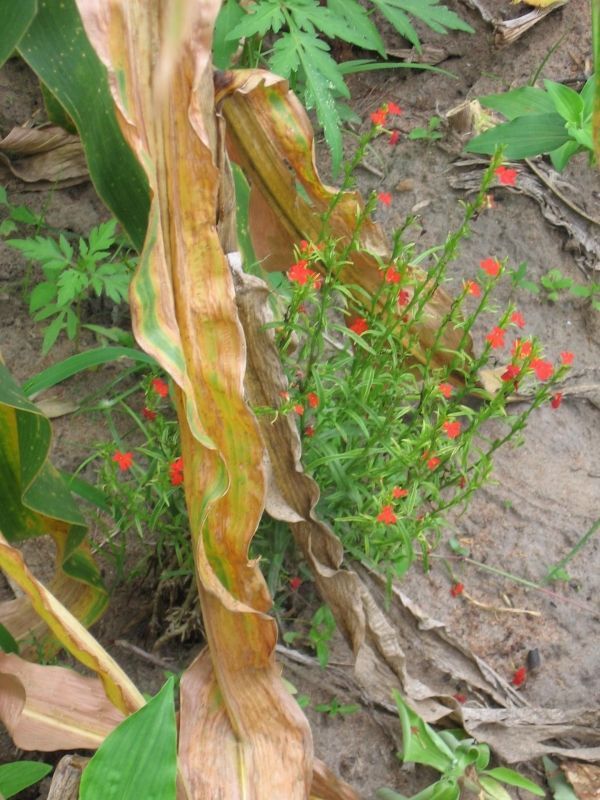The world produces more corn by weight than any other cereal crop. Corn, also known as maize, is a staple food in many countries. But farmers growing corn face many challenges, such as drought, diseases, and pests.
For example, in sub-Saharan Africa, 20 to 80% of corn yields may be lost because of a semi-parasitic plant, Striga. In areas infested with Striga, farmers may even lose their entire crops.
In a new study, researchers from southern Africa identified several varieties of corn resistant or tolerant to Striga. Importantly, these varieties also have improved nutritional content, particularly protein.
The combination of Striga tolerance and improved nutrition is key. Farmers, as well as local populations, will benefit, says Peter Setimela, a study co-author. Setimela is a scientist at the International Maize and Wheat Improvement Centre in Harare, Zimbabwe.
Read more at American Society of Agronomy
Image: This is a flowering witchweed (Striga asiatica L. O. Krantz) in a conventionally-ploughed maize field on sandy soils in Madziwa, Zimbabwe. (Credit: Christian Thierfelder, CIMMYT)


